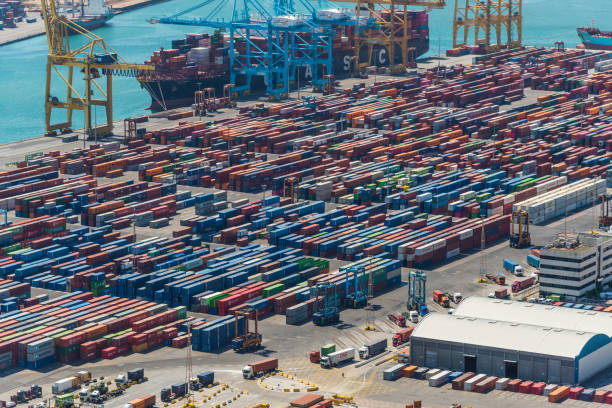Free trade zones provide a bunch of benefits to enterprises aiming to streamline their foreign operations. These regions are located within a country and allow different operations that lead to fostering international trade and economic growth. However, navigation of the customs regulations within the free zones can be an arduous task.
A free port zone is established to alleviate firms of government constraints and allow the free flow of goods. Free ports enable for tax-free import and export of commodities while ensuring tax exemption. These enormous benefits encourage corporations to choose free port zones for financial, tax, investment, and regulatory reasons. This blog will give an insight into the knowledge about free zones, including their benefits and regulations.
What Are Freezones?
Before diving deep into the topic, let us first understand what are trade zones. In simple words, they are the specific regions that are developed to encourage financial activities by reducing the regulatory load on companies. In the business environment, they offer numerous benefits such as low taxes, improved cash flow, and saving goods without direct customs obligations. Free trade zones can exist as different entities like special economic zones, export processing zones, and free ports.
Since these geographical areas are exempted from taxes, it is easy to set up businesses in them especially the special kinds of imports and exports. The freedom from liabilities is why these zones attract more organizations, encouraging them to relocate and register new corporations in these areas.
Benefits of Free Trade Zones
Free trade zones offer numerous benefits to organizations. From facilitating the exchange of goods between countries to tax evasion, there are so many advantages.
- Simplified procedure: Free trade zones usually offer streamlined procedures. As a result, this reduces paperwork and speeds up the movement of goods.
- More Inventory Control: Companies can store goods in free trade without quick tax clearance, enabling more flexibility in managing objects and responding to industry demands.
- Duty Delay or Reduction: Duties and taxes on imported products are frequently postponed until they leave the zone and reach the domestic marketplace. In certain situations, duties may be completely canceled if the products are re-exported without significant change.
Customs Regulations in Freezones
Navigating the tax regulations in the free economic zones requires a comprehensive understanding of the following important aspects:
- Legal Entry Procedures
Businesses must make sure that all the required documents, including invoices, certificates of origin, and other vital documents, are accurate and complete. This is because unauthentic documents do not facilitate custom entry and may cause delays.
- Advanced Filing
Numerous jurisdictions mandate electronic filing of custom entries in the free trade zones. For this, you must make sure that your systems are compatible with the legal authorities.
- Inventory Record Keeping
Accurate inventory management is crucial, especially in free trade zones. Companies must track all movements, such as imports and exports, within the free zones to ensure compliance with customs regulations.
- Compliance and Security
Ensuring security within the free trade zones is critical because all businesses must comply with security protocols such as surveillance systems, access controls, and securing storage. Furthermore, to ensure compliance with the Free Zones (FTZs) regulations, customs authorities may also conduct audits.
- Manufacturing and Processing in Free Zones
Companies must understand the specific regulations that regulate manufacturing and processing activities. Conducting value-added activities in the free trade zones can provide additional advantages to the companies.
Navigating Custom Regulations
To effectively navigate customs regulations, corporations should opt for the following strategies:
- Consult experts
- Implement robust compliance programs
- Leverage advanced solutions
- Conduct regular compliance audits
- Establish strong relationships with authorities
Challenges in Free Trade Zones
While free trade zones offer multiple advantages, companies may still go through some challenges, such as:
- Inventory Control
Maintaining a fully accurate inventory history of exchanged goods is a big challenge as it demonstrates compliance with the regulations.
- Important Transformation
Assessing the level of processing permitted within the free zone to qualify for duty exemptions can be difficult. Consulting with experts can help avoid unintended duty liabilities.
- Customs Audits
Free trade zones are subject to customs audits to ensure compliance with regulations. Preparation and careful record-keeping are essential to navigate these audits smoothly.
Final Remarks
Navigating customs laws in Free Trade Zones demands a thorough awareness of the regulatory environment and an active approach to compliance. Businesses can efficiently manage customs obligations and leverage the benefits of operating within FTZs by hiring specialists, developing robust compliance systems, using technology, communicating with customs authorities, and conducting regular audits. This strategic strategy not only improves operational efficiency and cost savings but also guarantees long-term success and sustainability in a worldwide marketplace that is competitive.
